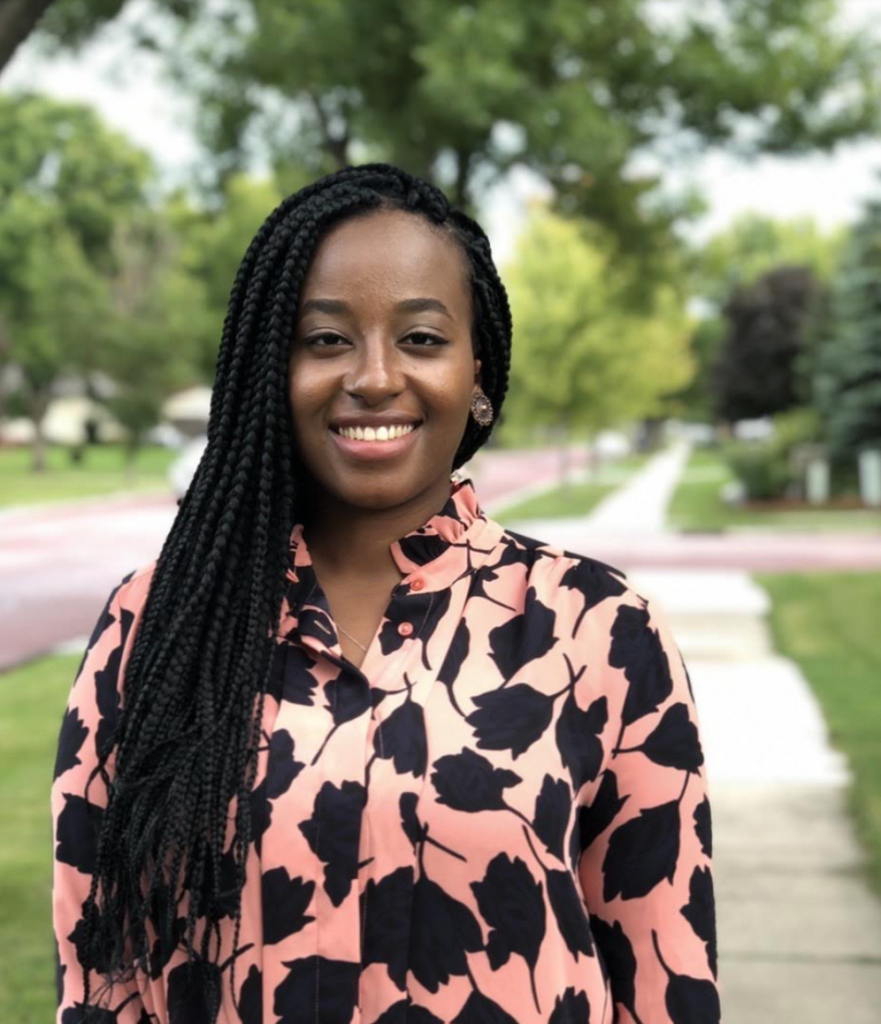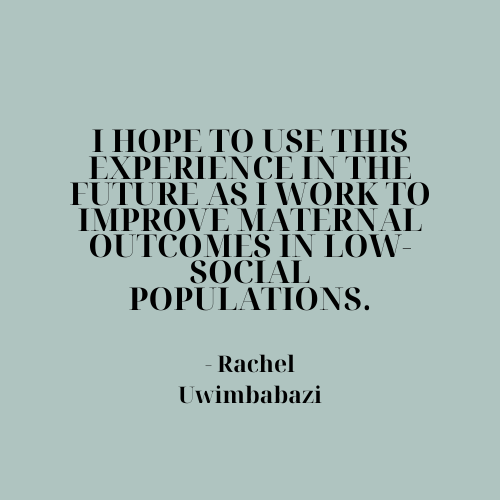#UMNMCH student Rachel Uwimbabazi (MPH ’21) wrote this reflection on how her coursework, internships, field experience, and culminating experience have all contributed to her career in MCH.

About Face2Face
During Fall 2020, I applied for a student consultant position with Community Health Initiative (CHI). What appealed to me about CHI is how they partner with local organizations and also consider students’ interests and experiences while matching them. As someone who is interested in working with low-social populations in the future, I was really interested in working on a CHI project since their projects address health disparities.
I was matched with Face2Face, an organization located in St. Paul, Minnesota. They serve youth ages 11-24 who have systematically experienced health disparities especially youth of color and of low socioeconomic status. After being accepted, I learned that I would be working alongside a colleague who is also an MCH student. We divided the work from the beginning and worked together to meet the expectations of the project.
About the Project
The main project was to develop pregnancy and parenting education sessions for youth receiving case management in their OB program. Topics included: nutrition, abstinence from drugs and alcohol during pregnancy, smoking cessation, relaxation and stress management, child abuse prevention, shaken baby syndrome, safe sleep, and breastfeeding/chest feeding. I worked on four of the topics: nutrition, abstinence from drugs and alcohol during pregnancy, smoking cessation, and child abuse prevention. We met weekly with our supervisor to report on our progress, brainstorm ideas, and get feedback. I did research on best practices on the topics and also relied on the research that was already compiled by a previous student consultant who worked at Face2Face.
One of the main goals of the project was for us to create virtual materials that can be used on tablets when the youth visit the clinic or online. So, I looked for appropriate videos that were educational and appropriate for the youth. I also created four PowerPoint presentations for each topic. The PowerPoints included educational information and pre/post test questions for youth to answer before and after receiving the education. I created answer keys for the pre/post test questions for staff to use, as well as a master document with more information on the topics, tips, resources, and suggestions for both the case managers and the youth. Finally, my colleague and I presented our work to the staff at a staff meeting on our last day.

Lessons Learned
I really enjoyed working with a colleague, it was easy to check in on our progress and bounce ideas off of each other. Our supervisor was incredibly helpful in providing feedback and suggestions on what would work best since she is familiar with the youth. There were also a few times we sent materials to case managers and some of the youth to get feedback and receive any additional suggestions to ensure we were on track and meeting their expectations.
This was my first professional work experience in my field of study. I was very excited to learn that this project was related to maternal health and with an organization that works with low socioeconomic populations. Working on this project improved my skills in teamwork and communication as I worked with others to meet the goal of the project and set up deadlines for upcoming tasks. I also gained more knowledge about maternal health and pregnancy while researching about the topics. I now have a better understanding about best practices during pregnancy and can use this in the future in a similar job.
This internship was also a unique one as we had to consider the social determinants of health that the youth face as we developed the materials. It was really interesting to see how the work came together as we considered all the different aspects about the youth to get appropriate materials that the youth can benefit from. I hope to use this experience in the future as I work to improve maternal outcomes in low-social populations. I now have an idea of what to do and why it’s important to know about the populations I am working with to have a program/project that works and addresses their needs properly.
Rachel Uwimbabazi is a second year MCH MPH student. Her background includes a B.S is in Community Health Education and minor in Health Science from Minnesota State University, Mankato. She recently accepted a position with Blue Cross Blue Shield MN where she will be working as a Social Determinant of Health intern to support in launching, piloting, and coordinating a new program for high risk populations. In her spare time, she likes hanging out and catching up with friends, watching movies and YouTube videos. After graduating, Rachel hopes to establish a career in Global Health focused on improving maternal and child health outcomes in low-social populations.
–Read Student Spotlight archives
Interested in learning more about getting a degree in MCH? Visit our MCH Program page for more information.
#UMNMCH #UMNproud #UMNdriven